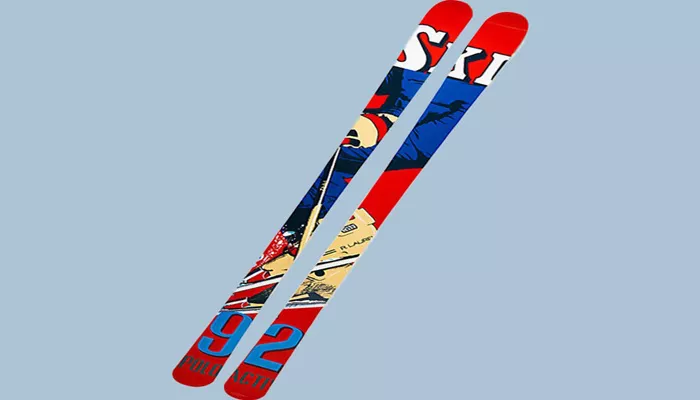Ralph Lauren has officially entered the world of luxury winter sports, but not in the way many might expect. The renowned American fashion house, better known for its iconic polo shirts and preppy aesthetic, has introduced a pair of “Ski ’92 Graphic Decorative Skis” priced at a staggering $1,950. However, these skis come with a catch: they are not meant to be used for skiing at all. These items are purely for display.
The skis, alongside a $1,750 snowboard, are intended for decorative purposes only. In essence, Ralph Lauren is selling what could be considered branded firewood—beautiful to look at, but not practical for the slopes.
While this isn’t the first time high-end designers have ventured into alpine sports gear, it marks a new level of luxury in the category. Brands like Dior, Prada, and Chanel have also released ski gear in recent years, but their products were designed for performance. Prada’s snowboards, for example, are made by Faction and were used by athletes like Julia Marino in the 2022 Beijing Winter Olympics. Chanel’s skis are crafted by Rossignol. Unlike those functional pieces, Ralph Lauren’s offering is purely ornamental.
Produced by the semi-custom ski manufacturer Polar, the skis are made from maple and poplar wood, and feature nostalgic graphics inspired by Ralph Lauren’s 1992 winter collection. They come with wall mounts but no bindings—emphasizing their role as luxury furniture rather than functional sports equipment. In other words, they are made to hang on a wall, not carve through the snow.
Historically, the high cost of skis and snowboards reflected years of research and development, with companies like Atomic, Rossignol, and Blizzard refining materials and designs for maximum performance. A $1,000 pair of skis might seem expensive, but they come with decades of alpine innovation. Ralph Lauren, on the other hand, charges a premium for aesthetics—skis that look impressive but lack utility.
This move speaks to a larger trend of gentrification in the ski industry. As the sport becomes increasingly inaccessible, the idea of paying $2,000 for skis that serve no practical purpose beyond decoration raises questions about the commercialization of skiing culture. The brand’s press release touts the skis and snowboard as “a bold decorative statement for any winter home,” but when equipment loses its connection to the sport it was designed for, one has to ask: is this still about skiing, or is it simply another luxury item?

